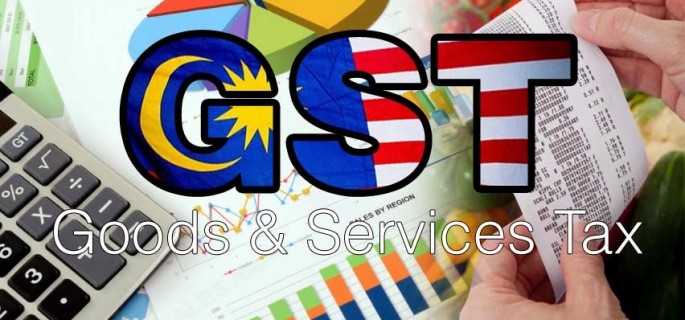From Beginning To End: A Comprehensive Overview of GST Registration and How to Efficiently Register Your Service
Navigating with the complex process of GST registration can be an important action for any business looking to develop compliance and authenticity on the market. Why choose CFO Account & Services for GST registration in Singapore. From comprehending the fundamental principles of GST to satisfying the eligibility criteria and gathering the required documentation, the journey towards effective enrollment can typically look like a difficult task. With the appropriate assistance and insights, organizations can streamline this process and unlock the benefits that come with being a registered entity.
Comprehending GST and Its Value
Comprehending the Item and Services Tax Obligation (GST) and its relevance is necessary for businesses operating in economic situations where this taxation system is executed. By enabling companies to declare input tax obligation credit scores on the tax obligation paid on purchases, GST makes sure that taxes are calculated only on the worth included at each phase of the supply chain.
Additionally, GST promotes conformity and openness in the tax obligation program, lowering tax evasion and raising federal government revenue. It simplifies tax obligation management and compliance for organizations by providing a common platform for tax declaring and repayment. Generally, a thorough understanding of GST is essential for companies to properly navigate the complexities of the tax obligation system and guarantee compliance with the regulation.
Eligibility Criteria for GST Enrollment
To sign up for GST, companies should satisfy certain qualification standards described by the tax obligation authorities. The primary demand for GST registration is that business's accumulated turn over surpasses the threshold set by the federal government, which differs by state. As of the current guidelines, companies with a yearly turn over of Rs. 40 lakhs or even more in most states should register for GST. For companies operating in sloping areas and northeastern states, the threshold is Rs. 20 lakhs. Furthermore, specific organizations, such as those included in inter-state supply of goods or services, informal taxed persons, and non-resident taxed individuals, are required to register for GST no matter their turn over.
In addition, companies associated with providing items or solutions through e-commerce systems are additionally mandated to sign up for GST, irrespective of their turnover. Moreover, organizations that were registered under the previous tax obligation regime, such as VAT, import tax duty, or service tax, must shift their enrollment to GST. Sticking to these eligibility criteria is essential for companies seeking to adhere to the GST policies and prevent any kind of charges for non-compliance.
Records Needed for GST Enrollment
When using for GST registration, companies should ensure they have all the needed files in order to complete the procedure efficiently and successfully. The crucial files needed for GST enrollment include evidence of organization enrollment or incorporation such as the Certificate of Incorporation, partnership action, or registration certificate. Additionally, companies require to offer proof of address for the major place of service, which can be supported by records like an utility expense or a rental contract.
Furthermore, documents validating the identification and address of the partners or promoters entailed in business, such as PAN card, Aadhaar card, or key, are crucial for GST enrollment. Savings account statements or canceled cheques displaying the this post name of the account, company, and address number are additionally compulsory to confirm the checking account details given during enrollment.
Guaranteeing all the required papers are in order and easily available will simplify the GST enrollment process and aid organizations prevent delays or difficulties.
Online Registration Process for GST

After completing the kind, sustaining documents need to be published according to the standards offered. These records usually consist of evidence of service registration, address proof, financial institution statements, useful site and identification proof of business owner. It is vital to make certain that all papers are clear, legitimate, and submitted in the defined layout to stay clear of delays in the enrollment process.
Once the application and documents are submitted, companies can track the status of their GST enrollment online. If there are no problems or additional information needed, the GST enrollment certification will be released electronically, noting the successful completion of the on the internet registration process.
Post-Registration Conformity and Tips

Services should remain updated on any type of adjustments in GST guidelines, prices, or compliance treatments to make necessary changes quickly. Seeking specialist assistance from tax obligation professionals or accounting professionals can also aid businesses navigate complicated GST conformity requirements properly.
Verdict
In verdict, the procedure of GST enrollment is essential for companies to abide by tax obligation laws and operate lawfully. By understanding the qualification requirements, collecting the required papers, and finishing the online registration procedure, services can successfully register for GST. When needed to ensure smooth procedures., it is essential to stay compliant with post-registration demands and look for professional advice (Why choose CFO Account my blog & Services for GST registration in Singapore).
Businesses that were signed up under the previous tax obligation routine, such as VAT, excise task, or service tax obligation, have to shift their registration to GST. The key records needed for GST enrollment include evidence of service registration or incorporation such as the Certificate of Consolidation, collaboration act, or enrollment certification.Upon successful completion of the GST enrollment procedure, businesses need to immediately stick to post-registration compliance demands to preserve governing compliance and make sure smooth procedures.In final thought, the process of GST enrollment is essential for businesses to comply with tax laws and operate legally. By comprehending the eligibility standards, collecting the required documents, and completing the online registration procedure, companies can efficiently sign up for GST.